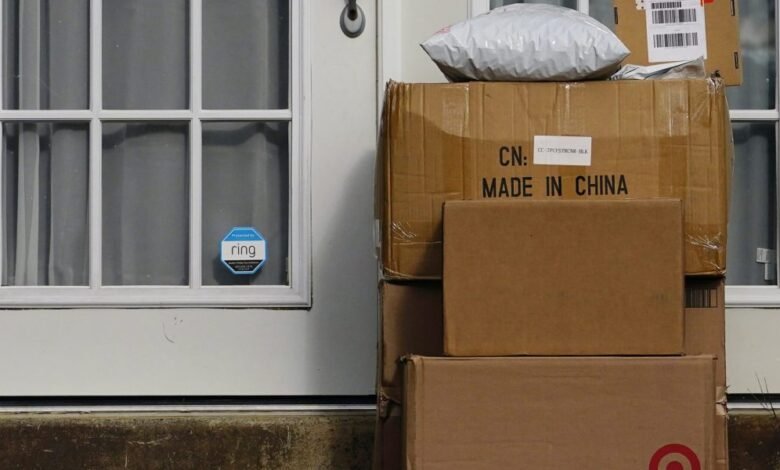CEO of Amazon-owned Ring says successful people can ‘drown out noise’


Most people use Ring, the Amazon-owned home security company, to keep an eye on their packages, their kids, or the areas wherein they reside. My affinity for the monitoring devices stems from watching TikTok videos of the most miniature and innocuous of pets terrorizing delivery people.
Regardless of one’s drive to invest in a Ring device, Liz Hamren, CEO of Ring, Blink, Amazon Key, and Amazon Sidewalk, says the roughly 11-year-old company has a new mission: keeping people close to what’s important. Hamren, who took over the doorbell company in March 2023 as the successor to Ring founder Jamie Siminoff, says the company’s new North Star is an evolution from its previous mission of keeping and making neighborhoods safe.
While the former was a noble cause, Hamren says, she noticed that customers were more inclined to use the product to see which neighbors arrived at their doorstep or to view the comical monologues and moments that occurred on their porches. To be sure, they were also using it to monitor deliveries, track the arrival of perishable goods, or, in moments of weather disasters, inspect if their home had flooded.
Now surpassing one year in the role and five years post-acquisition, Hamren spoke to Fortune about following in a founder-CEO’s footsteps, a founder vs. manager leadership style, and how she got to the corner office.
The below has been edited and condensed for clarity.
How do you imprint your stamp on the company and obtain buy-in from employees who have only known one CEO and founder?
I love working for and with founders because they bring this insight, relentless focus on the customer, and belief that they can make the impossible possible. When I come in as an outside leader, I don’t want to lose that energy, and I think it’s my job to say, ‘Hey, how do we scale that DNA, and how do I maintain that mindset when we grow to be a much bigger company?’ So it’s really understanding what that core DNA is and then operationalizing it to scale.
What are your preferences—hiring or which you emulate—on a founder or manager-type as a leader?
I think some people can build, and some can lead and manage; people confuse those two sometimes. In other words, there are builders and then those who really know how to captain but not build the ship—but they can run a team. However, some managers are builders, too, and that’s what you want. You want them as executives because they think entrepreneurially and they understand how to get in there. They understand what’s happening, but they also know how to operate at scale and where to dive in.
What did it take to become CEO of Ring?
Sure, some of it is luck, but chance favors the prepared mind. Additionally, there were a couple of people who helped me in my career and gave me opportunities to jump up to the next level. Very early in my career—coincidentally, both were men at Microsoft—two leaders gave me a bigger scope at work, and when those opportunities came, others were able to see me take those projects on and succeed.
When these types of opportunities present themselves, there’s a moment of being scared and humble, where you’re like, ‘I don’t know if I can do this job,’ so you have to reorient to, ‘How do I put aside the panic, embarrassment, and fear and get clear on what is important, what success looks like, and focus on those things.’ I think the most successful people just drown out all the noise. Instead, you zero in on: How am I going to get judged in this role? How do I want to be judged in this role?
Ruth Umoh
ruth.umoh@fortune.com
Today’s newsletter was curated by Natalie McCormick.
Smarter in seconds
Climbing the ladder. Meet the 9 CFOs from the Fortune 500 ready to make the jump to CEO
Touchdown. How Roger Goodell became the N.F.L.’s $20 billion man
Buckle up. How KIND’s founder went from mowing lawns to selling his company for $5 billion
News to know
Karen Lynch stepped down as CEO of CVS Health on Thursday after a difficult three year tenure atop the health giant. Lynch was the highest-ranking female CEO on the Fortune 500, with the drugstore chain at No. 6. Fortune
The AI startup Perplexity is seeking to raise around $500 million in what would be its fourth funding round in a year and would double its valuation to about $8 billion. WSJ
The Boeing workers’ five-week-long strike will make its proposal vote this week a cliffhanger for the aircraft manufacturer’s new CEO. Bloomberg
America’s economy is bigger and better than ever. Some say politics could bring it back down to Earth. Economist
Source link




